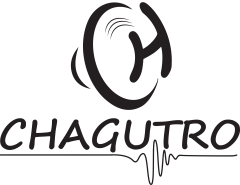In today’s quickly advancing educational landscape, the need for trusted, extensive, and available resources of information is higher than ever before. Research Encyclopedias have actually emerged as essential tools for pupils worldwide, providing a wealth of expertise at their fingertips. This short article explores the significance of Research Encyclopedias, their advancement over the years, and their role in supporting scholastic success.

As standard education methods adapt to digital technologies, finding out sources like Homework Encyclopedias continue to act as cornerstones of student discovering, giving organized and curated material. Comprehending their worth and influence can aid pupils leverage these resources efficiently in their educational trip.
The Development of Homework Encyclopedias
The principle of encyclopedias dates back to old worlds, where expertise was thoroughly recorded and maintained. From the scrolls of the Collection of Alexandria to the printed volumes of the Renaissance, encyclopedias have historically been treasured as databases of human success and understanding.
With the introduction of the digital age, encyclopedias have actually transcended their typical print layout, coming to be extra interactive and easily accessible. Digital Research Encyclopedias now supply multimedia resources, consisting of video clips, graphics, and interactive modules, which enhance the learning experience and make complex topics extra comprehensible.
Today’s Research Encyclopedias are not only readily available online but are also continually updated to guarantee the info continues to be present and relevant. This shift not only equalizes access to info however additionally transforms how pupils involve with their researches, helping with a much deeper understanding through diverse knowing modalities.
Trick Advantages of Research Encyclopedias
Research Encyclopedias provide countless benefits for pupils, teachers, and even moms and dads supporting their children’s discovering ventures.

They function as trustworthy companions, supplying organized details that helps in scholastic study and homework conclusion.
Among one of the most considerable advantages is their ability to give verified and thorough material. Unlike open-source information, which can commonly be undependable, encyclopedias are curated by experts, making sure precision and reputation. This integrity is important for pupils that need trustworthy information for their projects and research study tasks.
Furthermore, Research Encyclopedias assistance independent knowing and crucial reasoning. By motivating students to seek information proactively, they cultivate a sense of interest and campaign, which are vital abilities for long-lasting understanding.
- Comprehensive Web Content: Encyclopedias cover a wide series of subjects, providing details on subjects extending different techniques.
- Interactive Discovering: Multimedia aspects involve various learning styles, making information digestible and appealing.
- Reputation: Curated by experts, encyclopedias give trustworthy and accurate details.
- Continual Updates: Regular updates make sure students have accessibility to the most q&a resource for students existing info available.
Comprehending these benefits enables pupils to maximize their finding out possible by efficiently making use of Homework Encyclopedias as component of their research routine.
How to Utilize Homework Encyclopedias Successfully
To make one of the most out of Homework Encyclopedias, trainees must take on strategic techniques to their use. This begins with acquainting themselves with the layout and navigating of these sources. Understanding just how to look for details topics or just how to make use of index functions can significantly minimize time spent on study.
Another important technique is integrating encyclopedias right into broader research study techniques. While encyclopedias provide foundational understanding, they should be utilized together with other study techniques for a more nuanced understanding of complicated subjects. This mix of sources expands a student’s perspective and strengthens their understanding of subject matter.
Furthermore, students must utilize the multimedia includes readily available in electronic encyclopedias. These can assist in a better understanding of difficult concepts with visualization and interactive discovering, therefore improving retention and comprehension.
Top Research Encyclopedias Available Today
The world of Research Encyclopedias is huge, with numerous options available for students of different age and scholastic levels. Below are some extremely regarded encyclopedias that have stood the test of time and continue to sustain student success properly.
- Brittanica Online: Widely known for its reliable material, Britannica supplies detailed info on a broad selection of subjects, with constant updates and multimedia aspects.
- Globe Book Online: Uses an easy-to-navigate interface and tailored sources for various age groups, making certain material is age-appropriate and appealing.
- Encarta (Historical): Though no longer in magazine, Encarta set a criterion for electronic encyclopedias and remains a noteworthy mention for its introducing contributions.
- Khan Academy: While not a traditional encyclopedia, Khan Academy supplies an extensive collection of educational web content in a layout that enhances conventional encyclopedic resources.
These resources offer a superb beginning factor for pupils seeking premium info. Their variety guarantees that users can discover the best suitable for their specific discovering needs and choices.
The Future of Research Encyclopedias
As innovation remains to advance, the future of Homework Encyclopedias shows up promising, with advancements targeted at boosting individual experience and access to information.
Expert system is most likely to play a considerable function, offering personalized knowing courses and even more intuitive search functions, which can reinvent just how students engage with these sources.
Furthermore, the combination of digital and enhanced reality might open brand-new possibilities for experiential discovering, allowing pupils to involve with content in immersive environments. Such developments are readied to redefine the instructional landscape, making finding out more interactive and impactful.
The Duty of Educators and Trainees
In this developing context, educators and students must adapt to take advantage of these technical developments effectively. Teachers can direct pupils in using encyclopedias as part of their curriculum, encouraging important reasoning and research skills.
For pupils, the key depend on staying interested and open to discovering new devices and sources. By embracing Research Encyclopedias and comparable educational modern technologies, they can improve their scholastic performance and get ready for the obstacles of tomorrow’s knowledge-driven world.

